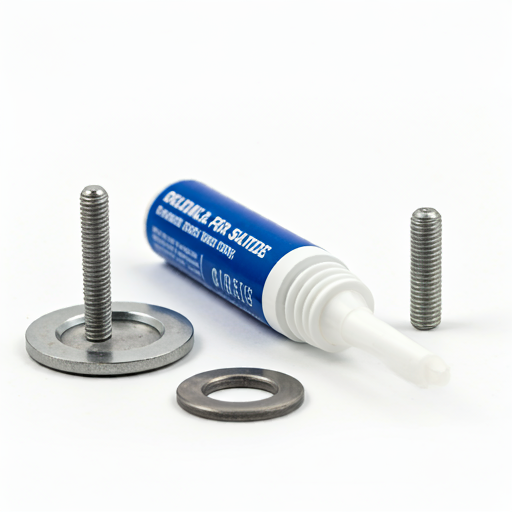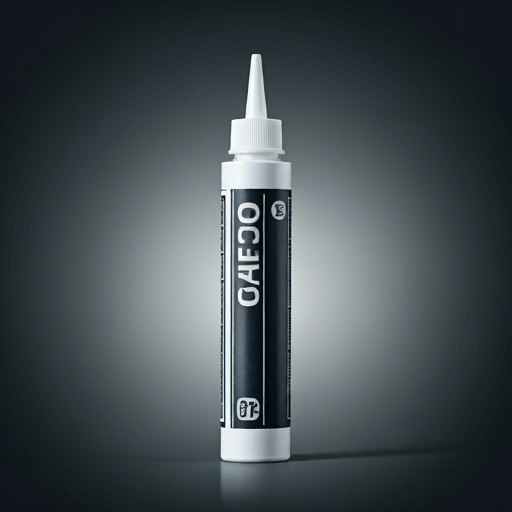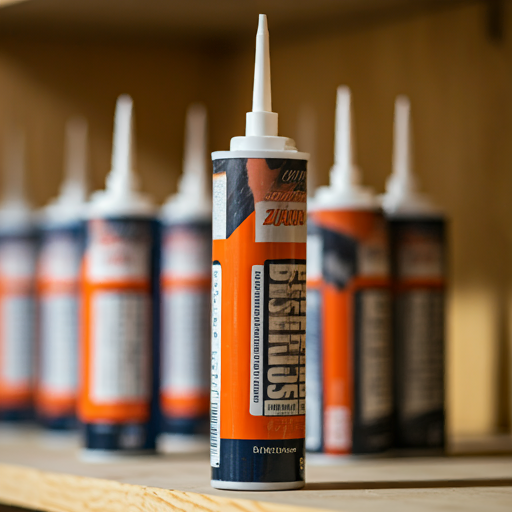For many cases, sealant for studs is crucial to ensure that things don’t leak and stay in place. It would be best to have the proper stud sealant, whether creating something, working on an engine, or sealing pipes. This guide will talk about the best finishes for different types of screws.
Some of these are the best thread sealant for rocker studs, the best manifold stud sealant, the best head stud sealant, and the best sealant for shower kits to studs. We will discuss their benefits, how to use them correctly, and what they’re used for.
What is stud sealant? Why is it important?
A chemical or glue called sealant for studs can fill in holes, seal threads, and keep water from getting around studs. Places that need a tight seal, like pipes, motors, and building parts, often use studs. No gas, liquid, or moisture can get out using the suitable sealer. The project’s organization needs to know how long it will last. You can avoid problems like leaks, rust, and damage over time if you use a suitable sealer for screws.

Thread Sealant for Rocker Studs
When rocker studs are assembled, a good thread sealer is needed. A thread sealant also keeps rocker bolts in place and stops leaks. Because these seals can withstand high pressure and temperatures, they are often found in engine bays.
Why would you want to use it?
Use suitable thread glue to fix oil or coolant leaks around the studs. If you don’t, they can damage the engine.
How to Use This Tip
Make sure the threads are very clean before you apply the sealer. The sealer should be spread evenly and completely dry before starting the engine.
What is the best oil to protect an 8N tractor’s manifold studs?
If you want your 8N tractor engine to work well and have good seals, choose the best manifold bolt sealer. A sealant is important for handling high temperatures and vibrations that can damage tractor manifold bolts.
Items suggested: Look for lubricants that can withstand heat and the engine’s movement. Many people pick Loctite 567 or Permatex High-Temperature Thread Sealant.
How to Use This Tip: Lay a little sealant over the manifold screws and wait for it to dry as the manufacturer tells you to do before tightening the bolts. This will keep the cover tight and stop any leaks.
What is the best glue for head studs?
It is essential to ensure that engine head pins do not leak. This is especially true for engines that are under a lot of pressure. The best head stud sealant can keep its cover even when it’s hot and under pressure.
Necessary: Leaks can damage head studs, which are important parts of an engine. The suitable sealer gives a strong hold that lasts long and can handle the rough conditions inside an engine.
Most-Chosen Options: ARP Thread Sealer and Loctite 592 are well-known seals that can keep head nuts together. They stick well and can handle high heat.
What to Do: First, clean the threads. That’s it! Use a little glue to make it even. Tightening the seal could damage the pressure guidelines if you don’t follow the pressure guidelines.
What’s the best glue for attaching shower kits to wall studs?
When you put the shower kit together, seal it to the studs so water doesn’t leak behind the wall, damaging the structure or growing mold. The best sealant for connecting a shower kit to studs is waterproof, will not grow mold, and can be bent over.
It’s important that the sealer is easy to use, dries quickly, and creates a cover that keeps water out. Polyurethane covers work best for this most of the time.
Items suggested: GE Advanced Silicone 2 and Gorilla Waterproof Caulk & Seal are great for bathroom jobs. They keep water out so mold and mildew can’t grow.
Hints on How to Apply:
- Make sure it’s dry and clean.
- Apply the sealer in one long bead, ensuring it covers the entire edge of the shower kit.
- Be careful not to let water in.
- Smooth it out with your finger or a tool.
How to Choose the Right Sealant?
The following things should help you choose a stud sealant:
Temper: Check to see if the sealer can work in the temperatures you plan to use. The parts of an engine need to be able to handle heat.
Taking Care of Pressure: If you’re working on plumbing or an engine, ensure the sealant you choose can handle the forces you’ll apply to it.
Fixed Time: Each sealer takes a different amount of time to set. Choose the one that works with your work schedule.
Compatibility with chemicals: Check if the finish will work with your metal, plastic, or rubber.
Why it’s a good idea to use a sealer on studs
There are many reasons to use a good lubricant on studs, such as:
- There are no more leaks. It keeps the system clean by making sure that fluids don’t exit.
- Protection against corrosion: It keeps water out, which keeps the studs from rusting and corroding.
- That lasts longer: It forms a vital link that can handle shocks, high pressure, and temperature changes.
- Easy to maintain: The less upkeep needed, the better the sealing, which saves time and effort.
Sealant Stud Coverage Tips: Cleaning Threads
Dirt, oil, or old glue can all affect the bonding. Make sure the threads are very clean before you apply new wax.
Make sure you use the right amount. Putting down too much sealer can make it easier to spread out or stop up. It should be moderate and well-distributed.
Do what it says to do for curing: Each sealer takes some time to dry. Ensure the sealant has time to dry before putting too much pressure on the parts.
The Right Way to Store: Sealants should be kept somewhere cool and dry. Before using them, check the date on the package to ensure they’re still good.

Well-known names of stud sealant
Many suitable sealants on the market can be used for different joint jobs. These names are some of the most well-known: You can use Permatex’s thread seals at home, work, or in the car.
Loctite seals cling well and resist high pressure and heat.
If you need to fix a bathroom or pipe, Gorilla Glue’s waterproof sealants are great because they are solid and bendy.
People trust GE Silicone to make seals that don’t mold and last a long time in the kitchen and bathroom.
Conclusion
Sealant for bolts is helpful for many tasks, from fixing cars to building new homes. The best sealing for the job will depend on temperature, pressure, and how well the material works with the sealer. The best lubricant for head studs, thread sealant for rocker studs, and manifold stud sealant for 8N tractors keep things safe and don’t leak. In the same way, the best sealer for shower kits for walls keeps your bathroom clean and stops water damage. Your projects will be safe and last longer if you follow the instructions and tips given.
FAQ’s
Does any sealant work for all studs?
Various applications need various sealants. Rocker stud thread sealant must tolerate high temperatures, while shower kit sealant must be watertight.
How long does sealant cure?
It varies by product. Consult the manufacturer’s curing directions.
Must studs be cleaned before sealing?
Clean studs for proper adhesion and leak prevention.
Can engine parts be sealed with silicone?
High temperatures may damage silicone sealants, so they are not recommended for engine parts. Instead, use engine-specific thread sealants.
How to remove old stud sealant?
Use a wire brush or chemical cleaner to dissolve old sealant without breaking studs.
Understanding proper procedures and picking the suitable stud sealant will speed up and prolong your projects. Try different products and ask for recommendations.
For more tips, keep visiting ImprovementOfHome.com.

